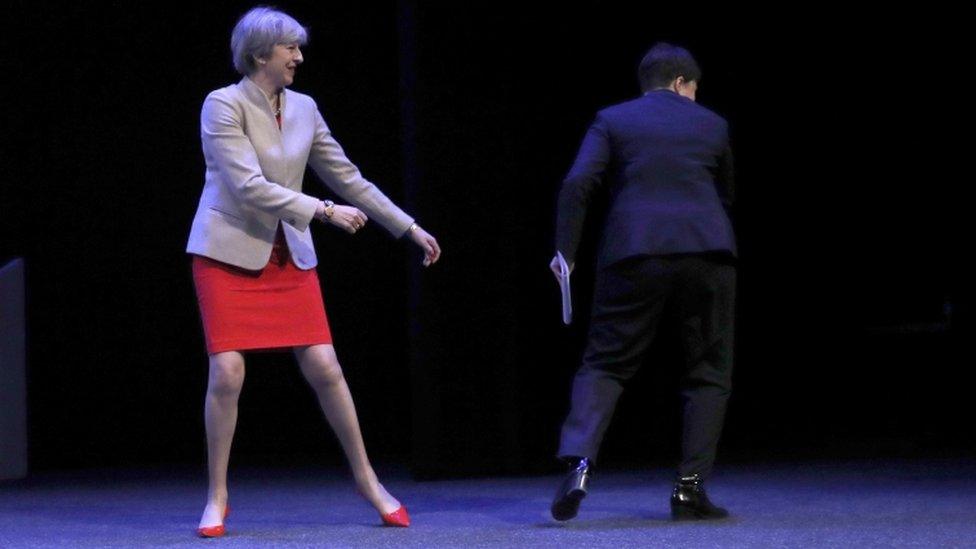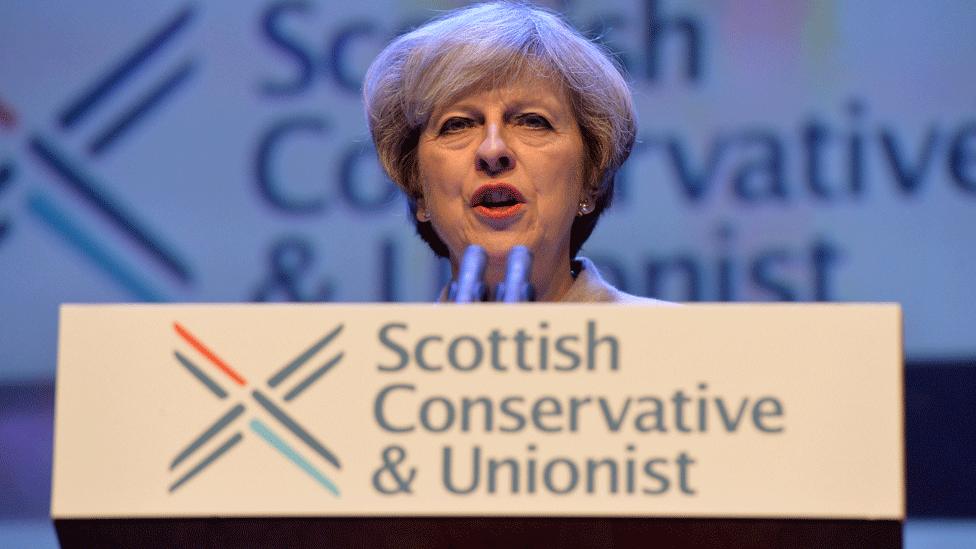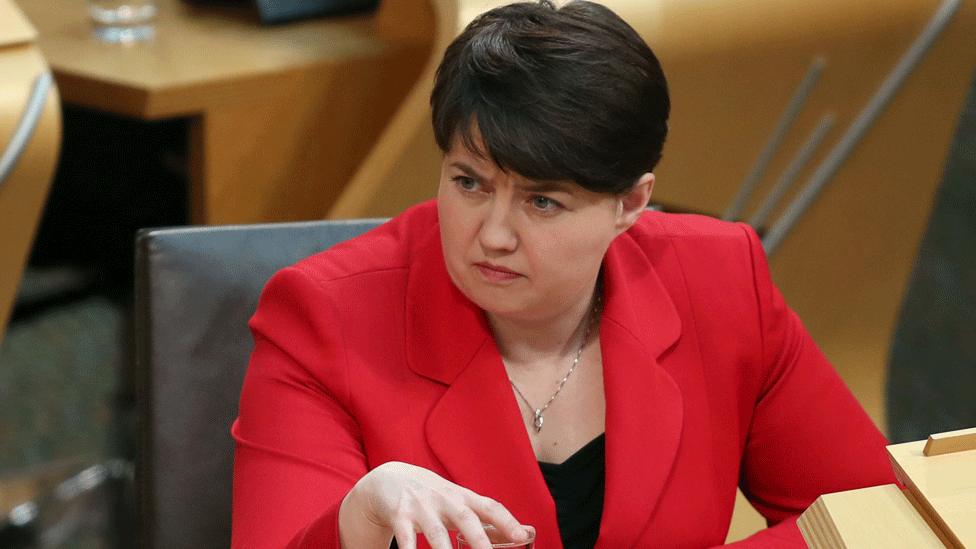Scottish Conservatives look to past, present and future
- Published

It was, I think, Joni Mitchell who chanted of her desire to "talk in present tenses". Instead of a Chelsea morning, we experienced a Glasgow afternoon in the company of the Scottish Conservatives.
Ruth Davidson, she who leads the Scots Tories, varied the tenses in her talk. There was much of the present (Joni would approve). She talked of the challenges created by Brexit and demanded that the first minister dump any thought of indyref2. Now. In the present.
There was talk too of the past. Of Conservatives "back in the day" who had continued to deliver the leaflets even when they knew the chance of victory was non-existent.
Of the gains last year, when the Tories became the main opposition party at Holyrood. Of the change in prime minister. Ms Davidson, rather cheekily, said the previous guy was "pretty good" but she plainly warmed much more to the current incumbent, who addressed the conference yesterday.
Blunt fashion
But it was the bit in the future tense which was most striking. She said the Conservatives must now pitch themselves, must begin to behave like a Scottish government in waiting.
In her customary blunt fashion, she added: "We're not there yet. Not by a long shot". I suspect that her political rivals would endorse that sentiment.
Her argument was that the Tories must continue to reform the way they operate in order to match that future ambition. Remember that at the Holyrood elections last year the Tories set out to be simply the opposition, explicitly eschewing the prospect of power.

Ms Davidson introduced the prime minister to the conference on Saturday
In line with that new ambition, Ms Davidson set out plans for two substantial reviews of public service: one covering the Curriculum for Excellence, the other the delivery of health care.
Is it feasible that they could attain power? Statistics going back a few decades would suggest not. They came to be seen as a party whose roots were other than Scottish. They came to be seen as remote, ungrounded, inimical.
Can they change that still further? Go back to the year 1955 (a grand year in other respects.) In that year, the predecessors of the Tories gained a popular majority, the only party to do so since universal suffrage.
Two differences, though. Firstly, the contest then was largely two party. The Liberals were in sharp decline, the SNP had not got properly started.
Ducked the question
Secondly, the Tories then were the Scottish Unionists. Their appeal was substantially on those grounds. But their gains last year were largely founded upon offering undiluted support for the Union, corralling No voters, in contradistinction to the SNP.
Could they then go further - or, in a multi-party Scotland - has that appeal reached its zenith?
Their objective, self-evidently, will be to build upon that Unionist base by creating a combined pitch: holding down taxation, reforming public services. The voters, of course, will determine whether it works.
Meantime we have the small matter of Brexit and its attendant impact upon Scotland. Speaker after speaker, including the PM, said there should not be a second independence plebiscite. It was a bad idea.
But speaker after speaker also ducked the question of whether the UK government should exercise its effective veto by declining to grant a Section 30 transfer of powers.
Perhaps understandably, neither the Tories nor the SNP want to be precise about their intentions. The Tories won't talk of veto. The SNP won't talk, explicitly and without caveat, of urging a referendum.
Talking tenses, Ruth Davidson sought to rule out "would" and "could", preferring the more direct "will" and "can".
But, again understandably, Scotland's political leaders are currently letting I dare not wait upon I would. Think cat. And adage.
- Published3 March 2017

- Published3 March 2017
